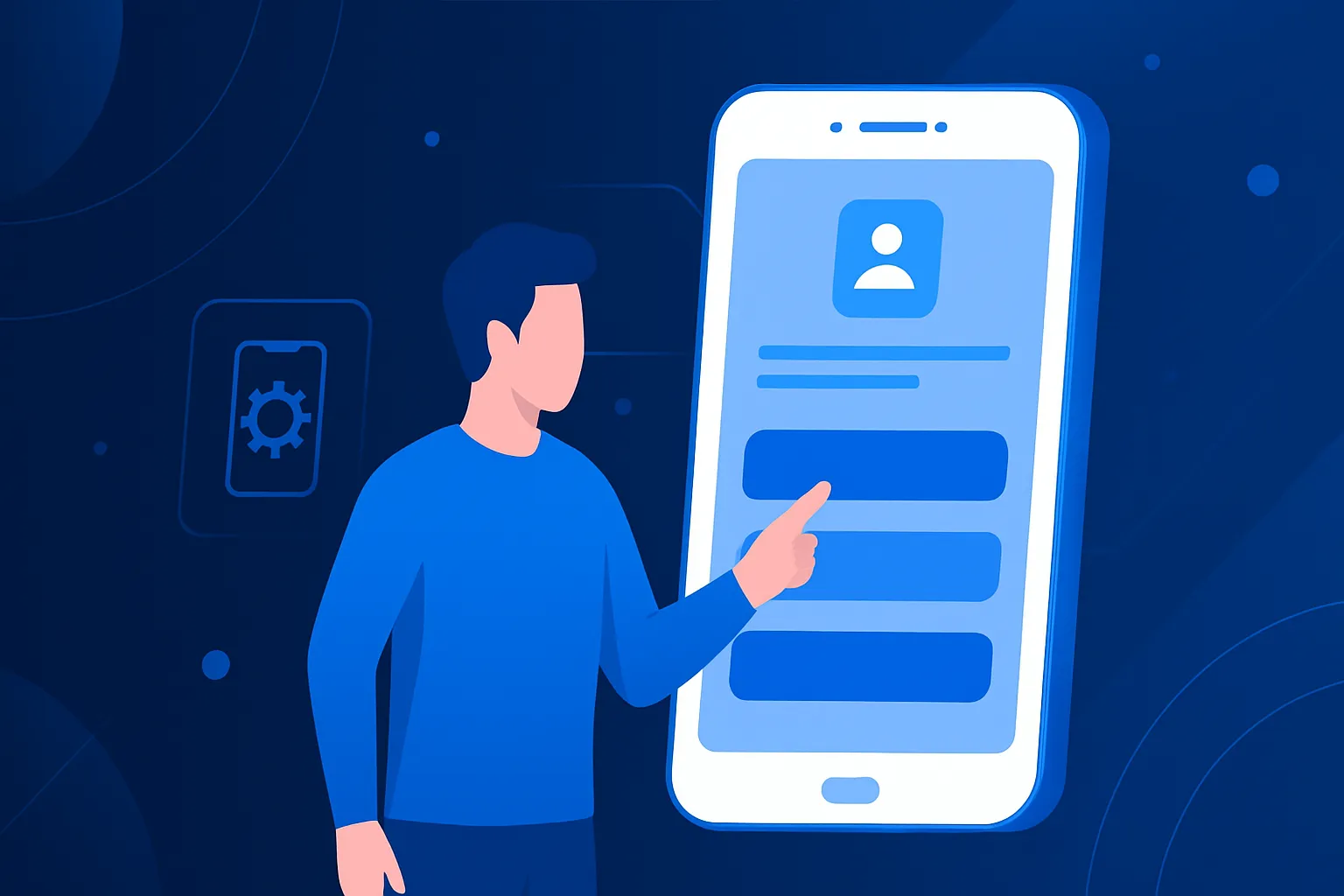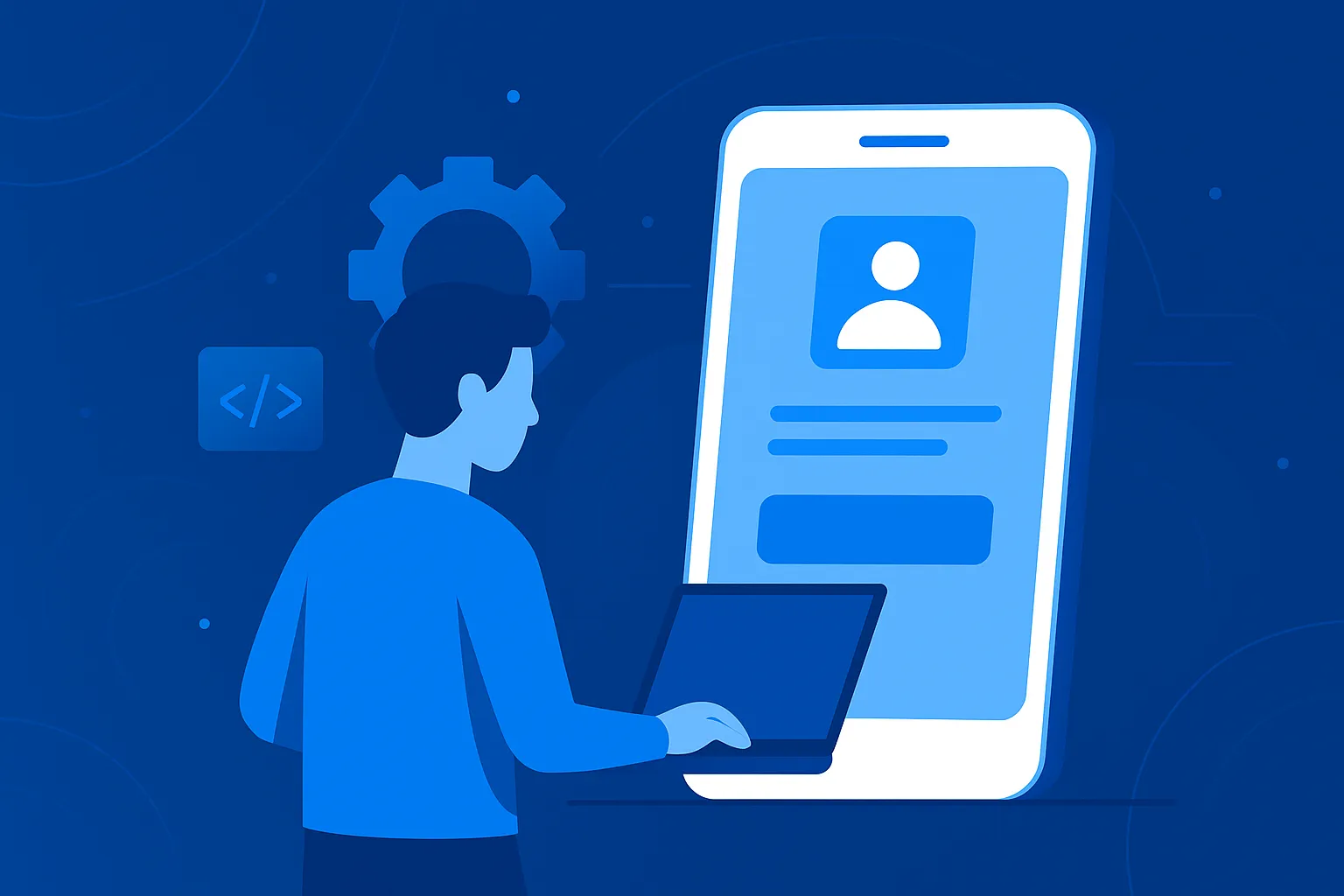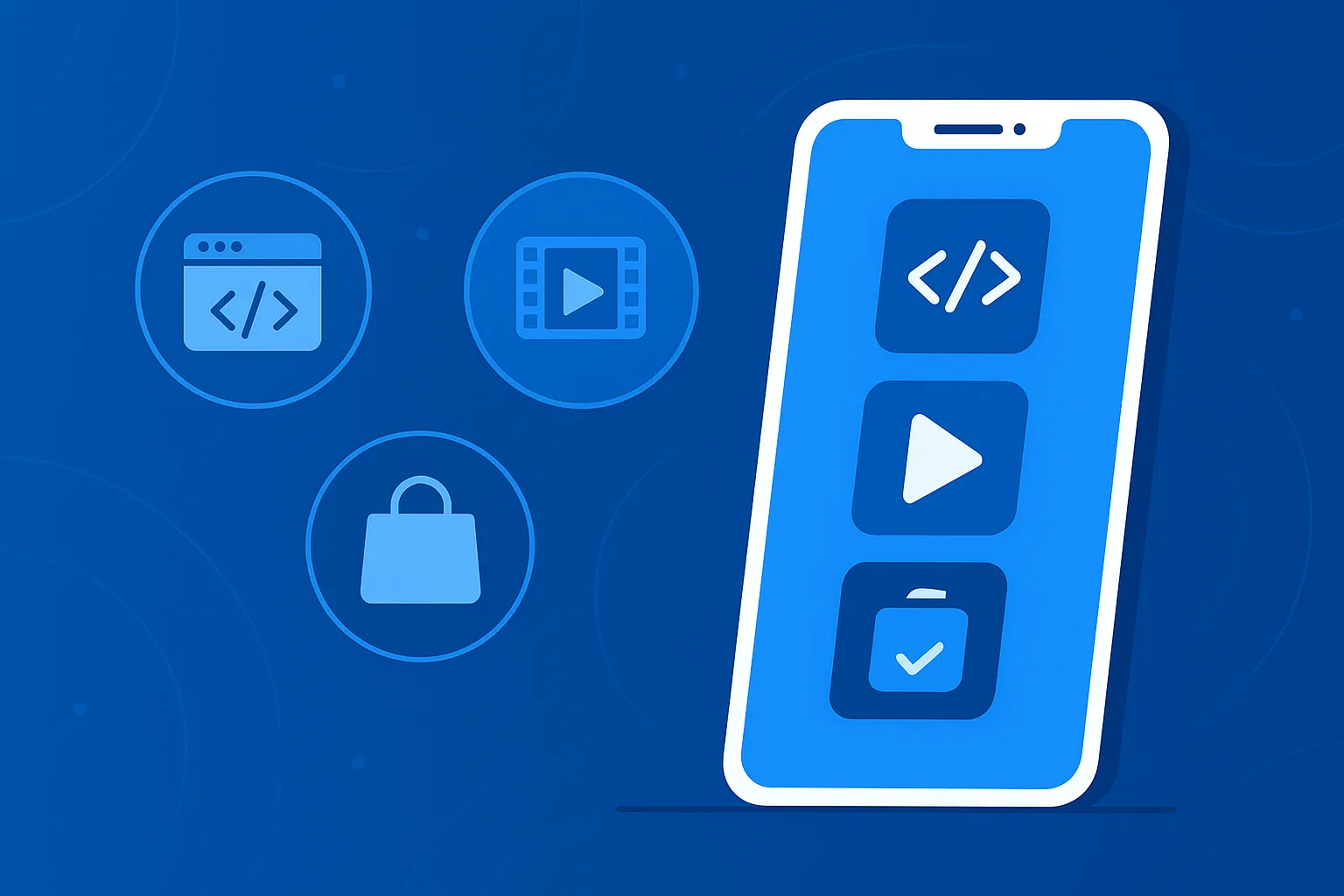August 5, 2025
August 5, 2025

Mobile app development refers to the process of designing, building, and deploying software applications specifically for mobile devices such as smartphones and tablets. It encompasses a wide range of technologies, frameworks, and approaches tailored to iOS, Android, or cross-platform needs.
This guide provides a clear definition of mobile app development, walks you through the core development stages, and explores key app types to help you better understand how to approach your next digital product.
What is Mobile App Development?
Mobile application development is the process of designing, building, testing, and deploying software applications that run on mobile devices such as smartphones and tablets. These apps can be tailored for specific platforms (iOS, Android) or built to run across multiple environments.
But it's more than just coding. It involves:
Importance and Benefits
Here’s how investing in mobile app development creates real impact:

Popular Frameworks and Technologies
Choosing the right technology stack is a game-changer. It affects everything from performance to development time and scalability. Here’s what powers modern mobile apps:
Top Frameworks
Each framework has strengths, but choosing the right one depends on your project goals, target audience, and desired app complexity.
Tools and Supporting Software
To streamline and supercharge the development process, top developers rely on powerful tools such as:
These tools not only reduce time-to-market but ensure your app is robust, scalable, and secure from day one.
Here’s a breakdown of the four dominant types of mobile apps and how to know which one is right for your business.
Native apps are purpose-built for specific operating systems like iOS or Android. Developed using platform-specific languages such as Swift (iOS) or Kotlin (Android), these apps are optimized for maximum performance, flawless UI, and seamless integration with device hardware.
Why do global brands prioritize native app development?
Native development demands more time, budget, and platform-specific expertise. That’s where an elite mobile application development company becomes invaluable. By outsourcing mobile application development, you get access to native experts without the overhead of hiring in-house.
Cross-platform apps allow you to write once and deploy everywhere. Using frameworks like React Native and Flutter, developers can create apps that run on both iOS and Android using a shared codebase.
This approach is a strategic win for companies looking to move fast, save budget, and scale efficiently.
Key benefits of cross-platform apps:
Cross-platform solutions are ideal for MVPs, startups, and businesses with tight deadlines. Outsourcing mobile application development to a company with cross-platform expertise can help you deliver a high-performing app that looks and feels native without the native cost.

Progressive Web Apps (PWAs) are web applications that look, feel, and function like native mobile apps but run directly in a browser. They load instantly, work offline, and offer push notifications without requiring app store downloads.
So, why are PWAs gaining momentum?
PWAs are perfect for businesses that want to deliver fast, responsive mobile experiences without investing heavily in native or cross-platform builds. Think content portals, service-based apps, booking platforms, or lightweight eCommerce sites.
Hybrid apps blend web and native technologies. Built using web languages like HTML, CSS, and JavaScript, they’re wrapped inside a native shell that enables access to device features — and can be published through app stores.
Why choose hybrid development?
Hybrid apps are ideal for information-centric tools, content-driven apps, or projects with budget and timeline constraints. While not as fast as native apps, the trade-off is often acceptable especially if your app doesn’t require advanced 3D graphics or real-time interactions.
Building a mobile app is a strategic, multi-phase journey that demands clarity, creativity, and precision at every step. Whether you're launching your first product or scaling an existing platform, mastering the mobile application development process is critical to delivering apps that captivate users and drive real business results. Let’s break it down.
The mobile app journey isn’t just about writing code, it's a strategic, multi-disciplinary process that transforms your idea into a functional, market-ready solution. Let’s dive deeper into each critical stage of a winning mobile application development process.
1. Market Research and Needs Analysis
Before building, you must understand. This phase is where insights meet opportunity. Skipping research is like sailing without a map, risky, costly, and usually doomed to fail.
What this stage involves:
A professional mobile application development consultation at this stage helps avoid launching an app no one needs. It’s your first strategic filter to build what matters.
2. Strategic Planning
This is where vision becomes a roadmap. With clear insights in hand, it’s time to structure your development plan like a military campaign.
What’s included:
Working with an experienced mobile application development company allows you to leverage proven frameworks and avoid reinventing the wheel.

3. Design
Great design is not decoration, it's the functional intelligence behind every touch, swipe, and screen.
Design activities include:
Design is where user empathy meets technical precision. Outsourcing mobile application development with top design capabilities ensures your app is not only beautiful, but usable and lovable.
4. Development
This is execution at its finest, where developers bring your design to life with functionality, logic, and integrations.
Development includes:
A reputable mobile application development company works in agile sprints, allowing you to iterate quickly, test fast, and pivot when needed without blowing the budget.
5. Testing
A complete testing strategy covers:
6. Deployment
Deployment includes:
With expert mobile application development consultation, you can ensure a smooth, fast, and impactful launch without frustrating rejections or downtime.
1. Optimizing App Performance
In mobile, speed is conversion. If your app lags, users leave — it’s that simple.
Performance optimization involves:
Apps that feel effortless perform better in app stores, get higher retention, and build lasting loyalty.
2. Creating a Great User Experience
User experience isn’t a bonus, it's your biggest differentiator. When users feel in control, understood, and guided, they stick around.
UX excellence includes:
With the help of a leading mobile application development company, you can design user flows that not only convert, but build emotional connection with your audience.
3. Ensuring Security and Maintenance
Best practices include:
By outsourcing mobile application development, you gain access to dedicated teams that stay on top of evolving security protocols and user needs keeping your app safe, relevant, and future-ready.
Engage with a battle-tested mobile application development company, or start with a tailored mobile application development consultation that will clarify your roadmap, cut unnecessary risks, and fast-track your success.
Conclusion
Mobile app development is not just about writing code it’s about building powerful digital experiences that users love and businesses rely on. From native to hybrid apps, from planning to deployment, each phase of the development process plays a vital role in ensuring your app performs, engages, and delivers real results.
Whether you're a startup founder, a product manager, or seeking a mobile application development company to outsource your next big idea, having a clear grasp of the process and app types will set you apart. Ready to turn your concept into a mobile success? Start with the right strategy and the right partner.